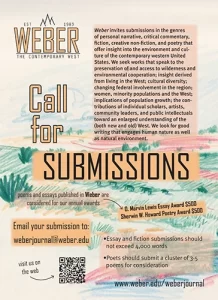College Literature – Summer 2008
Volume 35 Number 3
Summer 2008
Quarterly
Kenneth Nichols
This issue of College Literature is devoted to essays that examine the intersection between law and literature. The essays make the case that the law often influences literature, but more importantly, that literature can effect change in the law.
This issue of College Literature is devoted to essays that examine the intersection between law and literature. The essays make the case that the law often influences literature, but more importantly, that literature can effect change in the law.
Patrick Colm Hogan complicates the very basis of law with his paper, “Tragic Lives: On the Incompatibility of Law and Ethics.” After establishing the commonly held relationship between the two, he posits a “profound and irresolvable conflict” between them. Hogan chooses his works wisely, illustrating this conflict as represented in varied works, from the ancient Greek (Antigone, Eumenides) to the modern (Krzysztof Kieslowski’s film Decalogue).
Paula J. Reiter entwines her in-depth reading of the case of a real Victorian serial killer with a possible explanation of the popularity of the Sherlock Holmes tales. Reiter considers the trial of Dr. Thomas Neill Cream from the perspective of the Victorian concept of the professional, a person who is supposed to have insight unassailable by commoners. Sherlock Holmes, of course, is a master of uncommon insight.
Sometimes, a writer’s work can cause him problems. Lesley J. Higgins and Marie-Christine Leps demonstrate the way Oscar Wilde’s writing complicated his trials and “played a strategic role in the implementation of governmentality as the predominant, publically-sanctioned mode for exercising power relations in the United Kingdom at the turn of the last century.”
Theron Britt considers two Supreme Court rulings about school desegregation. In Brown v. Board of Education, a black child was looking for permission to enroll in a white school. In Parents Involved in Community Schools v. Seattle School District No.1, a white child sought admission to a school, hindered by racial quotas. Britt views these cases through an interesting lens: that of the “literary conception of the individual.”
[www.collegeliterature.org/]




